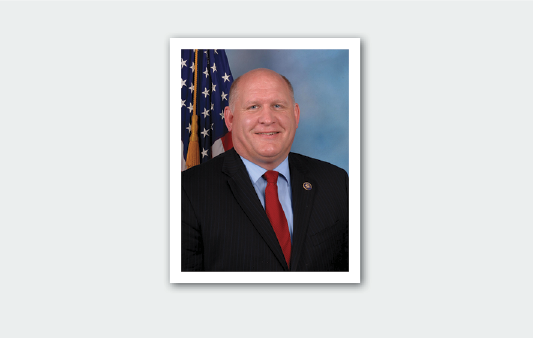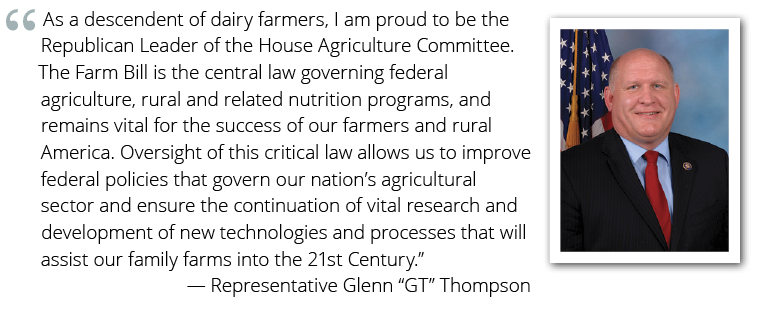
With the 2023 farm bill right around the corner, it’s a good time to get to know the decisionmakers who will have a hand in setting the country’s food and agriculture policy for the next five years.
The farm bill is written and negotiated by the leadership of the House and Senate Agriculture Committees before and after it’s voted on by the full House and Senate. Although there are changes to the bill throughout the process, ultimately the four leaders of the committees are the final decisionmakers who steer the ship. There are some fresh faces in agriculture committee leadership this time around. In fact, of the four leaders involved in the 2018 farm bill, only one remains in Congress, Chairwoman Debbie Stabenow.
Congressman Glenn “GT” Thompson from Pennsylvania is the new lead Republican for the House Agriculture Committee. He currently serves as the Ranking Member, but depending on the outcome of the upcoming midterm elections, he could become the Chairman of the committee if Republicans take back the House this November. Regardless, he will play an important role in the next farm bill. Each leader gets to make their mark, so it’s important to understand their background and experience.
Congressman Thompson was first elected to Congress in 2008, representing the 15th district of Pennsylvania. He’s a veteran of the House Agriculture Committee; he served on it for more than a decade and was part of the 2014 and 2018 farm bills. He has taken on various leadership roles throughout his time on the committee, which has earned him the top spot during the 2023 farm bill.
Although he hasn’t said much publicly about his priorities for the upcoming farm bill, the committee is currently collecting feedback from impacted stakeholders, which is the first stage in the process. His perspective will surely be informed by his district. Pennsylvania is one of the most agriculturally diverse states in the country, with a large dairy and poultry industry, grains, specialty crops, organic production, and more. In fact, Pennsylvania currently ranks fourth in the nation for organic production, with more than 1,600 certified farms and businesses and nearly $1 billion in farm gate sales. Congressman Thompson is very familiar with and well-versed in organic, having met with organic stakeholders including OTA members face to face over the years, both in D.C. and back in his district. He has been a supporter of organic research, certification cost-share, and other key priorities. In the 2018 farm bill, he was a cosponsor of the Organic Farmer and Consumer Protection Act, legislation that was included in the final bill. It provided the USDA National Organic Program with resources, authority, and tools to increase oversight of the global organic supply chain to combat fraud and ensure the integrity of the organic label.

Megan DeBates is Vice President of Government Affairs for Organic Trade Association.
This article was originally published in the Fall 2022 Organic Report, you can view the full magazine here.
